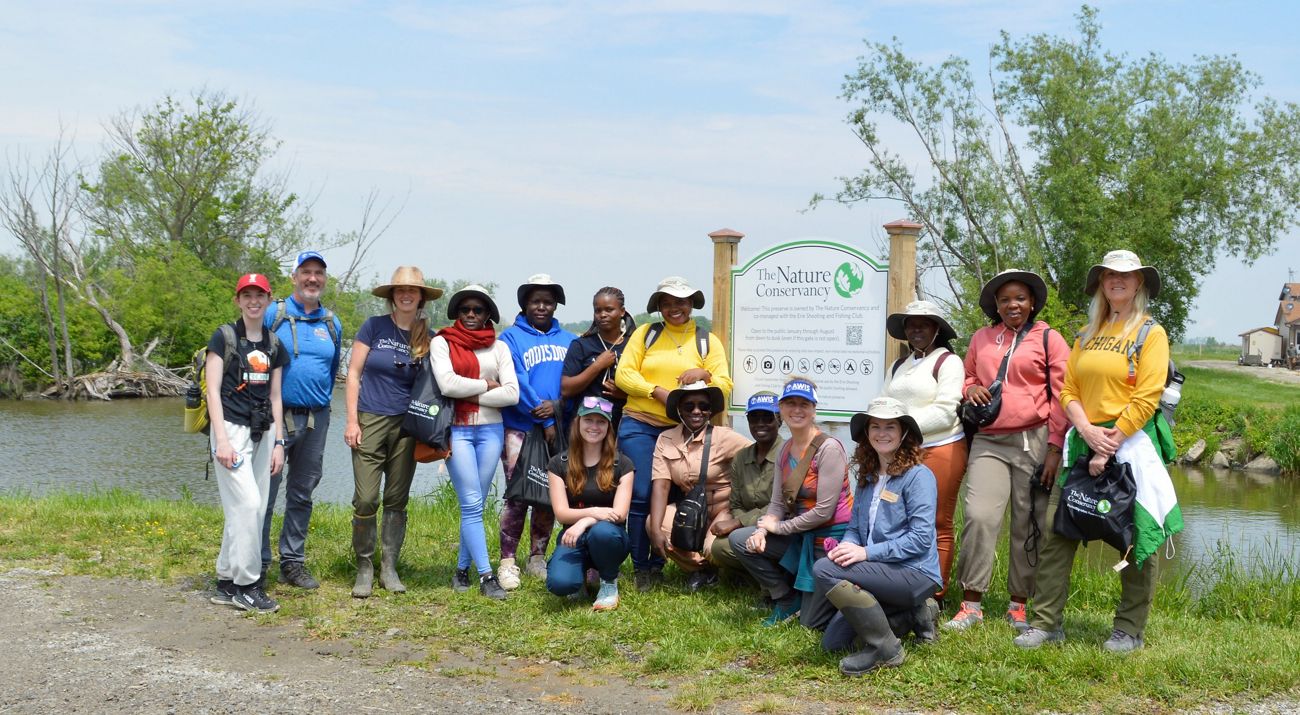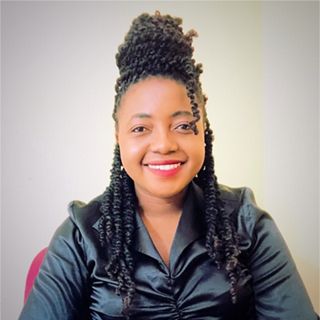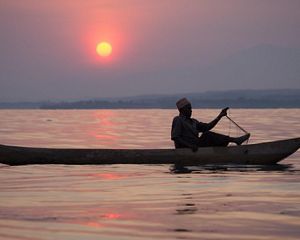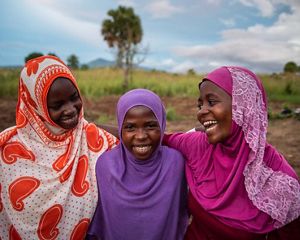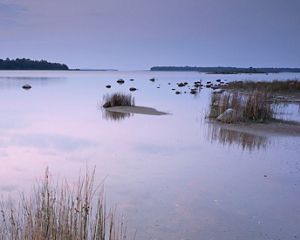From Great Lakes to Great Lakes
African Women Scientists Travel 7,000+ Miles to Share Conservation Strategies to Protect the World’s Fresh Water.
The World's Great Lakes
The African Great Lakes: Victoria, Albert, Edward, Tanganyika, Kivu, Malawi/Niassa/Nyasa and Turkana
The North American Great Lakes: Huron, Superior, Erie, Michigan and Ontario
Though they are thousands of miles apart, the North American Great Lakes and the African Great Lakes share more than a name. Collectively, the lakes support more than 100 million people and provide habitat for wildlife found nowhere else in the world.
Invasive species, climate change and degraded water quality all impact these aquatic systems and their biodiversity. Freshwater fish native to Africa, including over 200 species of cichlids in Lake Tanganyika, face threats from invasive species just as their North American counterparts do.
In 2014, The Nature Conservancy’s North American Great Lakes and Africa programs launched a “Great Lakes to Great Lakes Initiative” to meet the challenges facing the lakes and protect water quality for future generations.
“Whether standing at the shores of Lake Superior or Lake Tanganyika, you can’t help but become inspired by these vast bodies of water and share our passion for conservation with one another."
Patrick J. Doran, Ph.D.
Midwest Director of Strategy, Measures and Science, The Nature Conservancy
The initiative is built upon 50 years of experience in the North American Great Lakes and a decade of strong partnership and action in Africa, and is aimed at sharing the knowledge, tools and programs necessary to effectively manage Great Lakes systems and address threats that cross borders.
This knowledge exchange between the Great Lakes continues today. In May of 2024, a delegation of eight scientists traveled from Africa to the Midwest to conduct research and share their work. This group of women are helping ensure more female scientists' perspectives are part of conversations surrounding fresh water.
2024 AWIS Cohort
The cohort includes women from eight countries working on all seven African Great Lakes.
Meet the CohortAfrican Women in Science Delegation
The African Women in Science (AWIS) program, led by the International Institute of Sustainable Development-African Center for Aquatic Research and Education Program (IISD-ACARE), supports and guides African women scientists to catalyze positive change on the African Great Lakes and their tributaries.
Historically, women have been under-represented in the sciences—leaving a void in the perspectives and knowledge used to develop critical solutions. IISD-ACARE developed this training and mentoring program to ensure that African women scientists have the support and resources they need to continue their work.
Since May 2022, IISD-ACARE has sent a yearly delegation from their AWIS program to the North American Great Lakes. The 2024 cohort, consisting of aquatic and fisheries experts, researchers, PhD students and MSc candidates, spent two weeks meeting with their North American counterparts.
From sturgeon sampling with the U.S. Fish and Wildlife Service to a trip to the USGS Great Lakes Science Center, the international trip provided these early-career scientists with opportunities to learn methods for addressing Great Lakes issues from their peers.
The cohort met with members of TNC staff at Erie Marsh Preserve for a day of knowledge sharing about freshwater management. They also attended a networking dinner in Detroit with women business leaders from across Michigan, hosted by TNC and Inforum, a professional organization in Michigan that helps accelerate careers for women.
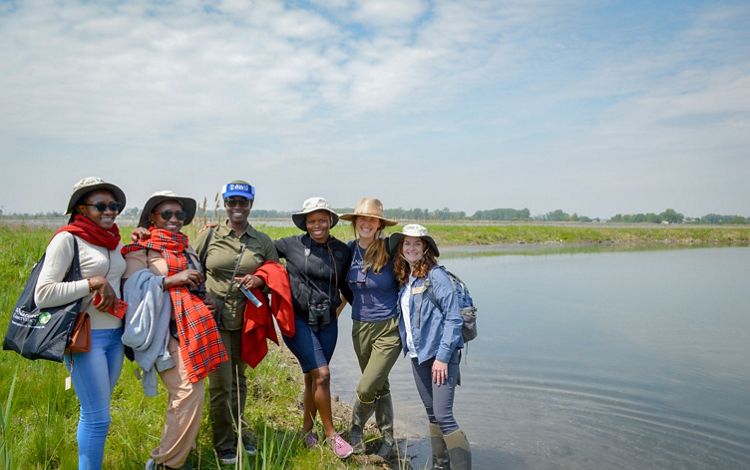
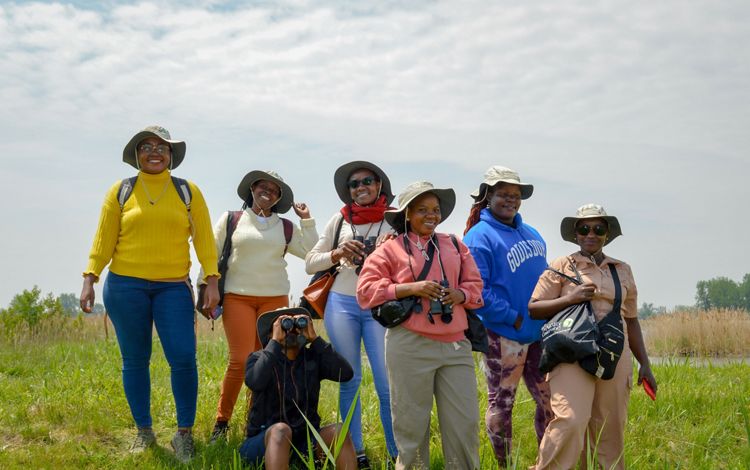
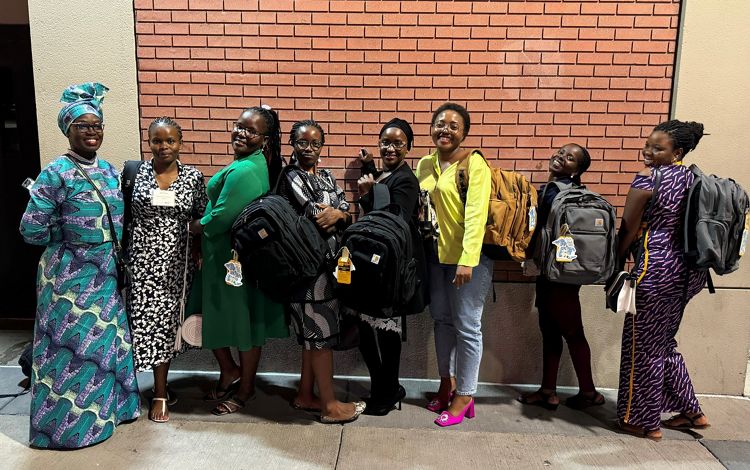
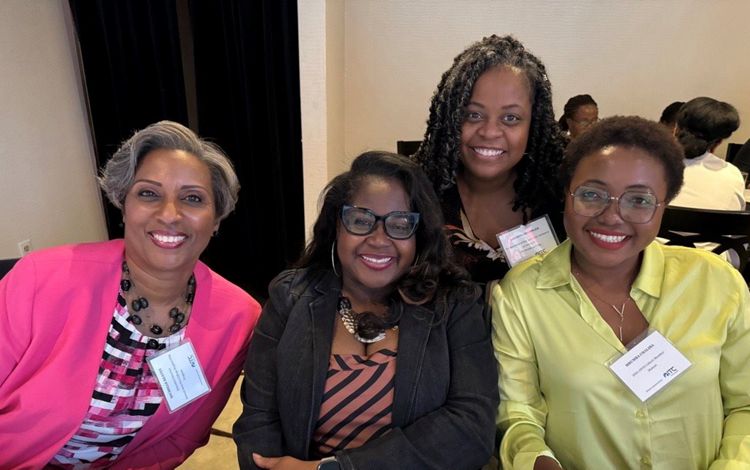
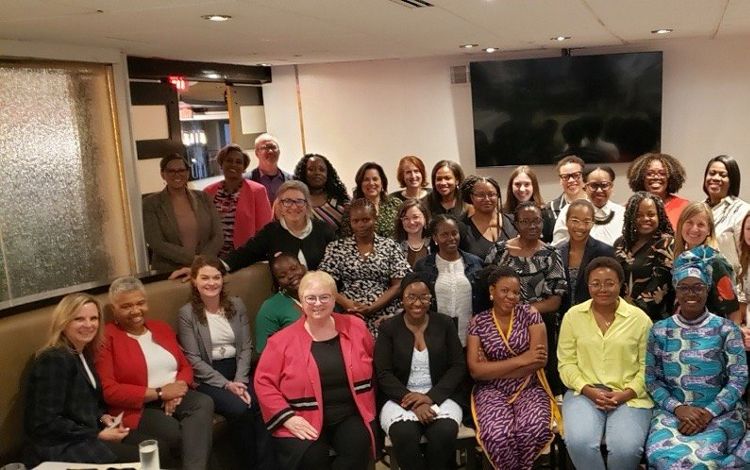
The Importance of Fresh Water
Natural and human communities both depend on fresh water for survival. The North American Great Lakes alone provide drinking water for approximately 40 million people while the African Great Lakes impact the livelihood of around 62 million people. The lakes are also home to wildlife found nowhere else in the world and are critical for biodiversity.
Despite its importance, we don’t have an endless supply. Only 3% of the water on our planet is fresh water. The North American Great Lakes make up about 21% of this while the African Great Lakes make up 25%. The rest of this precious resource is found in places like glaciers, streams, rivers, ponds and wetlands.
Just like the Great Lakes systems, the issues we’re facing are big. But with the power of our global organization, we can fundamentally change the world’s freshwater future. Strong science, powerful partnerships and shared knowledge can help us manage these globally important systems across multiple jurisdictions. It’s hard work, but necessary so that our freshwater systems can continue to provide the resources our planet needs. People and nature depend on it.
Join us online!
For more stories from Michigan and around the world, sign up to receive monthly updates.
